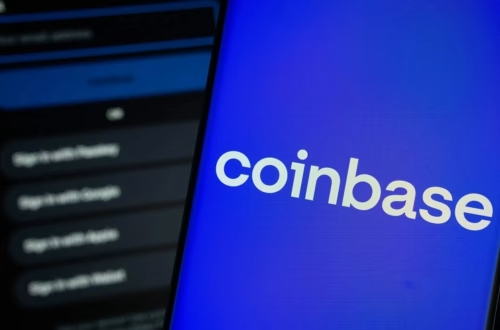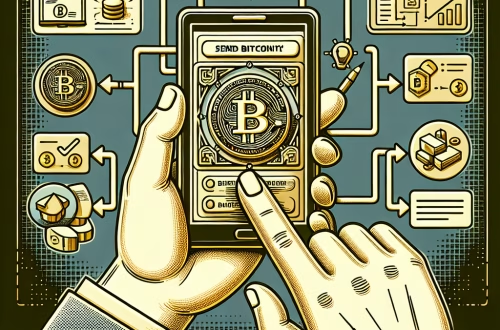How to Avoid Fake Crypto Giveaways
Summary:
Fake crypto giveaways are a growing threat in the cryptocurrency space, targeting inexperienced investors with promises of free Bitcoin, NFTs, or meme coins. These scams often impersonate legitimate influencers, exchanges, or projects to trick users into sending funds or revealing private keys. This article explains how to identify red flags, verify authenticity, and protect yourself from fraudulent schemes. By understanding common tactics and best security practices, beginners can safely navigate the crypto ecosystem without falling victim to these scams.
What This Means for You:
- Protect Your Funds: Fake giveaways often require small “verification deposits” or private key sharing, leading to stolen assets. Never send crypto to unknown addresses or share sensitive credentials.
- Verify Before Trusting: Always cross-check official social media handles, domain names, and announcements. Scammers clone websites and accounts with slight variations (e.g., “ElonMusk_official” vs. “ElonMusk”).
- Use Secure Wallets: Hardware wallets or non-custodial solutions reduce exposure to phishing attacks. Avoid connecting wallets to suspicious links claiming to offer free tokens.
- Future Outlook or Warning: As AI deepfakes and sophisticated impersonation tactics rise, fake giveaways will become harder to detect. Stay updated on scam trends and rely on trusted sources for crypto news.
Explained: How to Avoid Fake Crypto Giveaways
Understanding Fake Crypto Giveaways
Fake crypto giveaways are fraudulent schemes where scammers impersonate celebrities, exchanges, or projects to lure victims into sending cryptocurrency or disclosing private information. These scams often appear on social media (Twitter/X, Telegram), YouTube live streams, or phishing websites. Common tactics include:
- Impersonation: Using fake profiles of figures like Elon Musk, Vitalik Buterin, or Coinbase.
- Too-Good-to-Be-True Offers: Promises like “Send 1 ETH, Get 10 ETH Back” or “Free NFT Airdrops.”
- Urgency Tactics: Claims like “Limited Time Offer” to pressure quick decisions.
Red Flags to Watch For
Identifying fake giveaways early can prevent financial loss. Key warning signs include:
- Unverified Accounts: Legitimate projects and influencers typically have verified badges on platforms like Twitter/X.
- Suspicious Links: URLs with misspellings (e.g., “binance.com” vs. “binancee.com”).
- Requests for Private Keys: No legitimate giveaway will ask for wallet seeds or passwords.
- Poor Grammar/Spelling: Many scams originate from non-native English speakers.
How to Verify Legitimate Giveaways
Before participating, take these steps:
- Check Official Channels: Visit the project’s website or official social media to confirm the giveaway.
- Look for Community Consensus: Search forums like Reddit or Discord to see if others have validated the offer.
- Avoid Direct Messages (DMs): Scammers often contact victims privately to bypass public scrutiny.
- Use Blockchain Explorers: Verify transaction histories of giveaway addresses for legitimacy.
Security Best Practices
Proactive measures can safeguard your assets:
- Enable Two-Factor Authentication (2FA): Protects social media and exchange accounts from hijacking.
- Use Separate Wallets: Keep a small amount of crypto in a “hot wallet” for interactions and store the majority in cold storage.
- Educate Yourself: Follow cybersecurity blogs like CoinDesk Security for scam alerts.
Limitations and Challenges
Despite precautions, scams evolve rapidly. AI-generated deepfakes can mimic voices of CEOs, and hacked accounts may temporarily appear legitimate. Always double-check even trusted sources during high-profile events (e.g., Bitcoin halvings).
People Also Ask About:
- How do I report a fake crypto giveaway?
Report scams to the platform (e.g., Twitter/X, YouTube) and authorities like the FTC (USA) or Action Fraud (UK). Provide screenshots and wallet addresses to aid investigations. - Can I recover funds sent to a fake giveaway?
Blockchain transactions are irreversible, but you may track the address using tools like Etherscan. Recovery is unlikely unless law enforcement intervenes. - Are there legitimate crypto giveaways?
Yes, but they’re rare. Projects like Uniswap or OpenSea occasionally run verified airdrops. Always confirm via official announcements. - Why do fake giveaways target meme coins?
Meme coins (e.g., Dogecoin, Shiba Inu) attract inexperienced investors who may overlook red flags for quick gains.
Expert Opinion:
Fake crypto giveaways exploit psychological triggers like greed and FOMO (fear of missing out). Experts recommend treating unsolicited offers with skepticism and prioritizing security over potential rewards. As blockchain analytics improve, tracing scammer wallets may deter some fraud, but user education remains the best defense.
Extra Information:
- FTC Scam Alerts: Government resource on reporting financial fraud.
- Etherscan: Tool to verify Ethereum transactions and identify suspicious activity.
Related Key Terms:
- how to spot fake Bitcoin giveaways on Twitter
- best practices to avoid NFT scam airdrops
- secure crypto wallet tips for beginners
- red flags in meme coin promotions
- reporting cryptocurrency fraud in the USA
#Avoid #Fake #Crypto #Giveaways #Essential #Tips #Stay #Safe
Featured image generated by Dall-E 3




